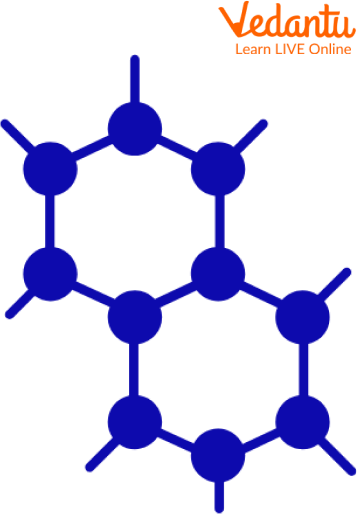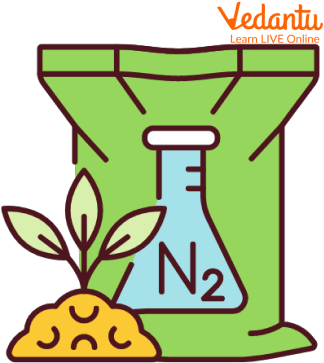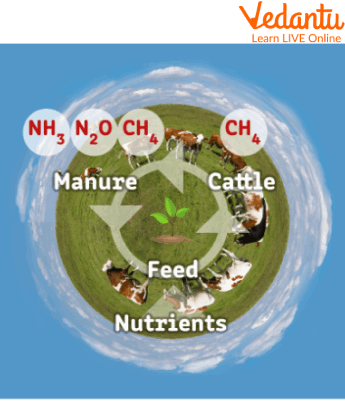




How Nitrogen Helps Plants Grow Faster and Stay Healthy
Nitrogen is the name of the chemical element that has the letter N and the atomic number 7. Nitrogen is a nonmetal and the lightest element in group 15 of the periodic table, also referred to as the pnictogens. Nitrogen is a component of all living things and is mostly found in adenosine triphosphate, DNA, and RNA as well as the amino acids that makeup proteins. After oxygen, carbon, and hydrogen, nitrogen is the fourth most prevalent element in the human body, making up around 3% of its total mass. In this article, we will read about nitrogen and its uses in detail. How crucial nitrogen is for plants and for the environment, we are going to discuss it all in the article. Let’s dive in!

Nitrogen
Plants Use Nitrogen Gas as a Nutrient
By ensuring that the plant receives the energy it needs to maximise output when and where it needs it, nitrogen performs a crucial role within the plant. This crucial nutrient is also present in the roots as proteins and enzymes that help regulate the absorption of water and nutrients. Plants obtain nitrogen from the soil in the form of nitrates and nitrites. Through the hairs on their roots, plants take it in from the earth. This is important for plant growth and development. It can easily evaporate into groundwater.
Organisms obtain nitrogen from plants in the form of proteins. Nitrogen is a chemical element. At standard pressure and temperature, it is a gas. About 78% of the Earth's atmosphere consists of nitrogen. It is also the most abundant substance available as an element. It is a colourless, odourless, tasteless gas. Nitrogen gas is used for making ice cream too. An inert atmosphere is made using nitrogen.

Plants Use Nitrogen Gas
Nitrogen Uses in Plants
The role of nitrogen in plants is crucial. Other than carbon, hydrogen, and oxygen, nitrogen is the element that is found in plants in the highest concentration. Numerous vital processes and substances required for life depend on nitrogen in some way. Different types of nitrogen can be found in numerous locations throughout the plant. The leaves, grains, plant tissue, and roots of plants all contain nitrogen. Nitrogen may play a role in the processes of life or in the construction of plants.
Leaves — Chlorophyll
In plants, nitrogen makes up a portion of chlorophyll. The green pigment in leaves and stems is called chlorophyll. Chlorophyll absorbs light energy and uses it to convert it into sugars that the plant may consume.
Plant Tissue — Plant Growth and Development
The molecules that control the growth and development of plants contain a lot of nitrogen. Nitrogen is also a vital part of the plant structure.
Grain — Protein
Protein is a component of all living things. Plants store protein in their grains, fruits, and seeds.
Roots — Nutrient and Water Uptake
Nitrogen is present in proteins and enzymes in the roots. They facilitate the plant's absorption of water and nutrients.

Use of Nitrogen in Plants
How Do Plants Utilise Nitrogen?
In the presence of air and moisture, nitrogen is transformed into soluble nitrogenous molecules in the soil. Plants absorb them and use them as plant proteins. In order to keep oxygen and moisture out of food packets, nitrogen, an inert and unreactive gas, is added to them. It decreases bacterial growth in food packaging, keeping food fresh and maintained.

Nitrogen is Utilised by Plants
Summary
To conclude all the conceptual understanding regarding viruses in this article, we can say that Nitrogen (N) is a nonmetallic element belonging to Periodic Table Group 15 [Va]. It is a colourless, flavourless, and odourless gas that makes up the majority of the atmosphere on Earth and is a component of all living things. We are wrapping up this article with this much information about nitrogen. We discussed the uses of nitrogen in plants and nitrogen utilised in plants which are present in the soil as well as in the environment. We hope you enjoyed reading this article, in case of any other doubts, feel free to ask in the comments.
FAQs on Importance of Nitrogen for Plants Explained
1. How much nitrogen do plants need?
There should be an adequate supply (40 ppm) of nitrogen (N) in the soil when the orchard is planted. A soil test conducted last fall or early spring is the best way to determine whether more nitrogen is needed. As plants use up the soil's supply of nitrogen, they starve for more. Nitrogen is crucial to plant growth and is required for it. It can be present in wholesome soils and provides plants with the energy they need to thrive and produce fruit or vegetables. Actually, the most crucial element for promoting plant growth is nitrogen.
2. Why do plants lack nitrogen?
Plants become more sensitive to the effects of lack of water and wilting of leaves is common. Leaves may die and drop prematurely, resulting in a significant reduction in yield. By applying nitrogen as a fertiliser, they start recovering within a few days. Overwatering due to excessive irrigation and heavy rains results in nitrogen deficiency. The ability of plant roots to absorb water-soluble nutrients is hampered by a lack of soil moisture.
3. Do all plants like nitrogen?
All plants require nitrogen for healthy growth and reproduction. More importantly, plants use nitrogen for photosynthesis. While native plants are better adapted to their surroundings and are often less affected by nitrogen deficiency, plants such as vegetable crops may require supplemental nitrogen. Nitrogen is essential for proper plant development and reproduction in all plants. The usage of nitrogen by plants for photosynthesis is more significant. Although native plants are more suited to their environment and frequently less harmed by nitrogen deprivation, supplementary nitrogen may be necessary for plants like vegetable crops.









